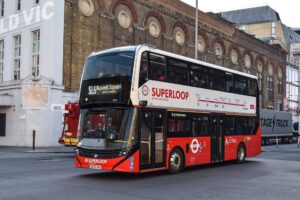A trial backed by Leeds City Council has found engines powered by liquid nitrogen could significantly reduce air pollution.
Liquid nitrogen engines, developed by technology company Dearman, are designed to power transport refrigeration units (TRUs) used in lorries to keep food and other goods cold whilst it is on the road.
Currently, TRUs are typically powered by diesel engines that are not subject to the same emissions standards as a vehicle’s main engine.
These secondary engines can emit up to six times the amount of air pollution.
Dearman’s liquid nitrogen TRU engines emit no air pollution whatsoever and up to 80% less greenhouse gases than diesel engines.
The trial predicts that if it was rolled out across Leeds the technology could lower air pollution emissions in the city by 19 tonnes every year.
Cllr James Lewis, Executive Member for Environment and Sustainability said:
‘Leeds City Council is committed to tackling air pollution in order to protect the health of everyone in Leeds.
‘New technologies will play a key role in enabling the council to reduce air pollution in the shortest possible timescale. Because of this, we are actively involved in several innovative trials just like this one.
‘We will now work with the government to encourage the rollout of this new technology so that residents in Leeds, and across the country, can enjoy the benefits of cleaner air.’
Scott Mac Meekin, CEO of Dearman added: ‘We are pleased to have led this trial with a leading supplier of ice products who should be commended for reviewing its local environmental footprint.
‘Leeds City Council has rightly identified second diesel engines on delivery lorries as a particular source of air pollution.
‘This trial has given the council the evidence it needs to encourage Government to take real action and support a switch to zero-emission alternatives instead.’
The trial was undertaken as a partnership between Leeds City Council, Cenex and Dearman.
















